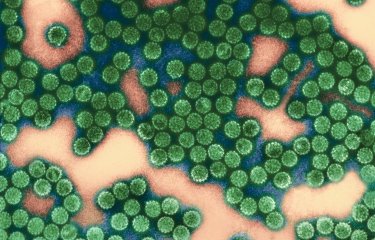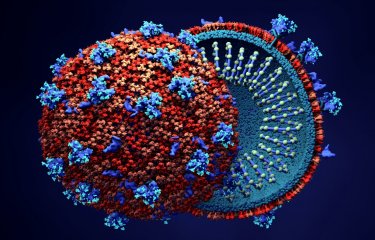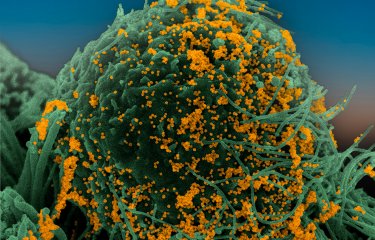As globalization and climate change spread tropical infectious diseases around the globe, not all populations have the same degree of susceptibility. Researchers from the Institut Pasteur, CNRS and the Institute for Research and Innovation in Health-University of Porto (i3S) identified gene variants common in people of Asian and European ancestry, making them more prone than those of African origin to developing severe dengue, which can lead to potentially fatal dengue shock syndrome. These results were published in the journal PLOS Neglected Tropical Diseases on February 15, 2018.
Dengue fever is endemic to tropical and subtropical regions of East Asia and the Americas, but the virus responsible for the disease has recently spread to North America and Europe due to the introduction of its vectors – mosquitoes of the Aedes genus – into these regions. The dengue virus can lead to a wide spectrum of illness, ranging from classic dengue fever (DF) to the potentially fatal dengue shock syndrome (DSS). Ethnic diversity has long been considered as one of the factors explaining why the severe forms of dengue are more prevalent in Southeast Asia than elsewhere, as previously shown in epidemiological research, yet the phenomenon has never been explained by human genetics.
In the new work, the team of Anavaj Sakuntabhai, Director of the Functional Genetics of Infectious Diseases Unit at the Institut Pasteur and the CNRS, in collaboration with the Institute for Research and Innovation in Health-University of Porto (i3S), studied the genetics of 411 patients admitted with dengue virus infection to three hospitals in Thailand between 2000 and 2003.
The researchers identified two genes related to blood vessel inflammation that confer risk of severe dengue, and four genes related to metabolism that affect risk of classic dengue fever. Further experiments showed that variations in the genes led to observable changes in cellular dynamics. Additionally, a comparison with the genetic databases of individuals of African and European origin showed that the prevalence of these variations varies based on ethnic ancestry.

Anavaj Sakuntabhai, Director of the Functional Genetics of Infectious Diseases Unit
The particular genetic risk conferred by these genes indicates that Southeast and Northeast Asians are highly susceptible to both phenotypes, while Africans are best protected against severe dengue. Europeans, on the other hand, are less susceptible to classical dengue fever but more susceptible to severe dengue fever.
This research offers insights that can help understand the pathophysiology of this infectious disease and develop new therapeutic approaches.

To find out more about dengue
Source
Joint ancestry and association test indicate two distinct pathogenic pathways involved in classical dengue fever and dengue shock syndrome, PLOS Neglected Tropical Diseases, February 15, 2018
Marisa Oliveira (1,2,3,4), Worachart Lert-itthiporn (5), Bruno Cavadas (1,2,3), Verónica Fernandes (1,2), Ampaiwan Chuansumrit (6), Orlando Anunciação (2), Isabelle Casademont (4,7), Fanny Koeth (4,7), Marina Penova (4,7,13), Kanchana Tangnararatchakit (6), Chiea Chuen Khor (8,9), Richard Paul (4,7,10), Prida Malasit (11,12), Fumihiko Matsuda (7,13), Etienne Simon-Lorière (4,7,10), Prapat Suriyaphol (5), Luisa Pereira (1,2,14,15) and Anavaj Sakuntabhai (4,7,10,15)
(1) i3S - Instituto de Investigação e Inovação em Saúde, Universidade do Porto, 4200-135 Porto, Portugal
(2) Instituto de Patologia e Imunologia Molecular da Universidade do Porto (IPATIMUP), 4200-135 Porto, Portugal
(3) Instituto de Ciências Biomédicas Abel Salazar (ICBAS), Universidade do Porto, 4050-313 Porto, Portugal
(4) Institut Pasteur, Functional Genetics of Infectious Diseases Unit, 75724 Paris Cedex 15, France
(5) Bioinformatics and Data Management for Research, Office for Research and Development, Faculty of Medicine Siriraj Hospital, Mahidol University, Bangkok, Thailand
(6) Department of Pediatrics, Faculty of Medicine, Ramathibodi Hospital, Mahidol University, Bangkok, Thailand
(7) Pasteur Kyoto International Joint Research Unit for Integrative Vaccinomics, Kyoto, Japan
(8) Genome Institute of Singapore, A-STAR, Singapore
(9) Department of Biochemistry, National University of Singapore, Singapore
(10) CNRS URA3012, Paris 75015, France
(11) Dengue Hemorrhagic Fever Research Unit, Office for Research and Development, Siriraj Hospital, Faculty of Medicine, Mahidol University, Bangkok, Thailand
(12) Medical Biotechnology Unit, National Center for Genetic Engineering and Biotechnology, National Science and Technology Development Agency, Pathumthani, Thailand
(13) Center for Genomic Medicine, Kyoto University Graduate School of Medicine, Kyoto, Japan
(14) Faculdade de Medicina da Universidade do Porto, Portugal
(15) These authors jointly supervised this work.





